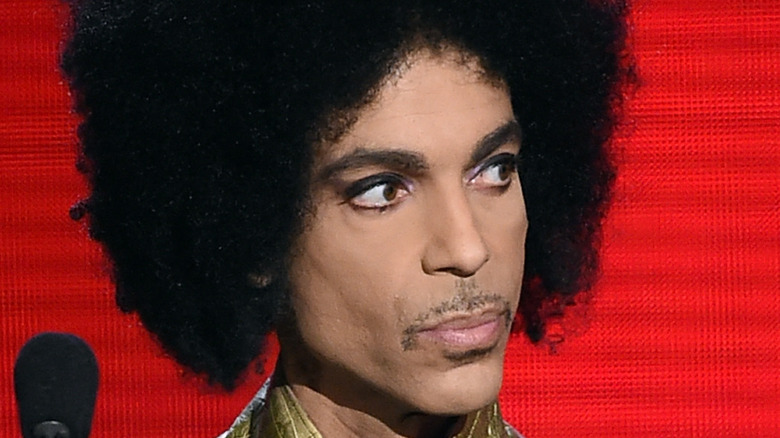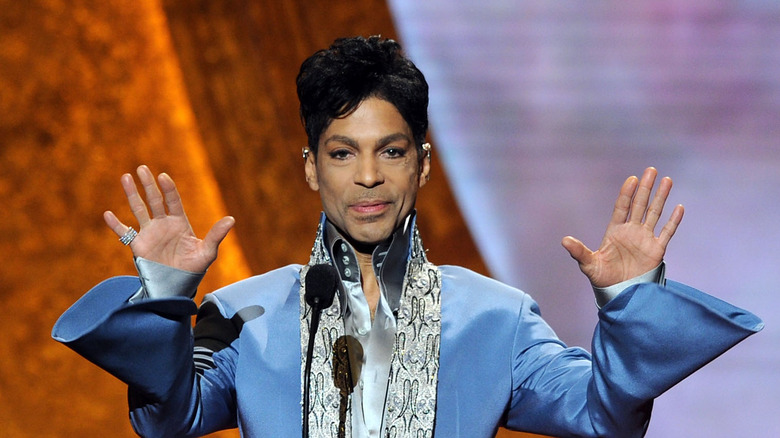Why Did It Take So Long To Settle Prince's Estate?
When Prince died in 2016 at the age of 57 at his Paisley Park estate in Minnesota, it was the end of an era. Prince was an iconic and creative force for nearly 40 years and his sudden death due to an accidental opioid overdose set off a massive wave of mourning and memorials, per History. Then-United States president Barack Obama summed up how many felt: "Few artists have influenced the sound and trajectory of popular music more distinctly, or touched quite so many people with their talent."
Prince left behind an estate estimated to be worth between $100 million and $300 million, but he did not leave behind a will. This led to years of confusion, arguments, paperwork, and massive legal bills, as reported by USA Today in 2019, when the estate remained unsettled three years after Prince's death.
Prince's six siblings automatically became his heirs, as he was unmarried at the time of his death and had no children. The lack of a will meant there was no way of knowing who Prince wanted to inherit his money, properties, or other extensive holdings. As the publicly available court documents are heavily redacted, and, per another USA Today article, the estate administrators have declined to speak on the matter, it's unclear exactly what was at stake in the estate, but a court summary noted $25 million in real estate, about $110,000 in cash, and 67 gold bars worth more than $800,000. Left outstanding at that time was a valuation of Prince's released and unreleased musical catalogs.
Prince died without making a will
Per USA Today, at the time of Prince's death several people claimed that Prince had owed them money, including the lawyer who represented Prince in his 2007 divorce from his second wife. The lawyer's case was ruled to be outside Minnesota's statute of limitations. The lack of a will also meant that the estate owed enormous tax bills to the United States government (40%) and the state of Minnesota (16%), which will reportedly be paid off over a period of 10 years. According to Forbes, Minnesota state law requires the state to appoint an executor of the will when someone dies without a will; Prince's heirs agreed upon petitioning the state to appoint the bank Bremer Trust. However, Bremer resigned, starting the time-consuming process of appointing an executor all over again. An additional snag was a dispute between the IRS and the estate concerning the taxable value of the estate.
As of July 2021, as reported by the Minnesota Star Tribune, the estate's control is divided between Prince's three oldest siblings and the New York-based behemoth music firm Primary Wave, which bought out 100% of two younger siblings' inheritances and 90% of the inheritance of Prince's full sister, Tyka Nelson. Primary Wave got its start in 2006 by acquiring half of the late Kurt Cobain's Nirvana catalog, then acquiring copyrights from a slew of living and dead performers, including Whitney Houston, Stevie Nicks, and Smokey Robinson. Primary Wave offered to buy out the other three siblings' shares of the estate, but has so far been unsuccessful. Prince's half-sister Sharon Nelson said, "We'll never sell out. We know the prize."

